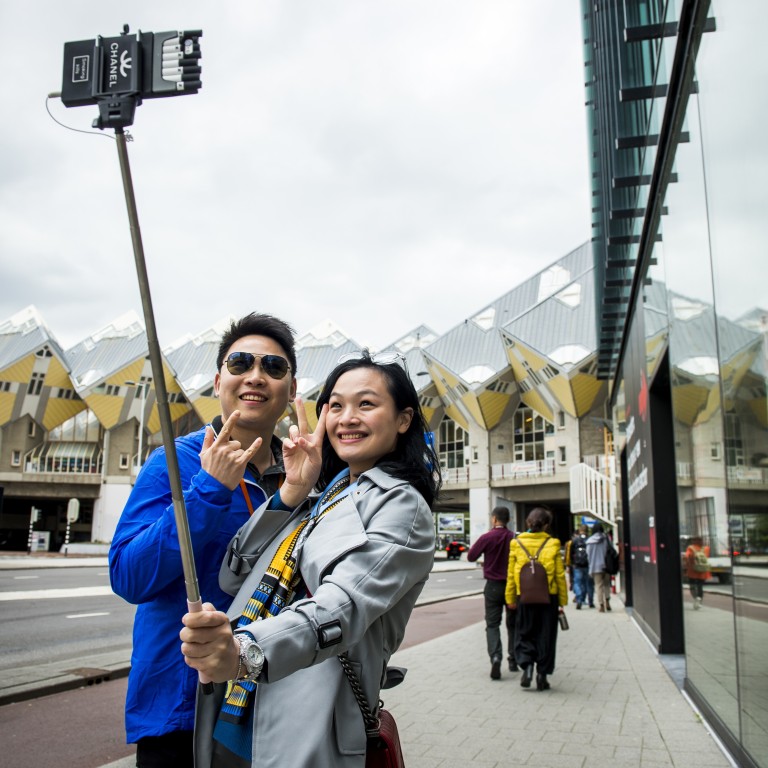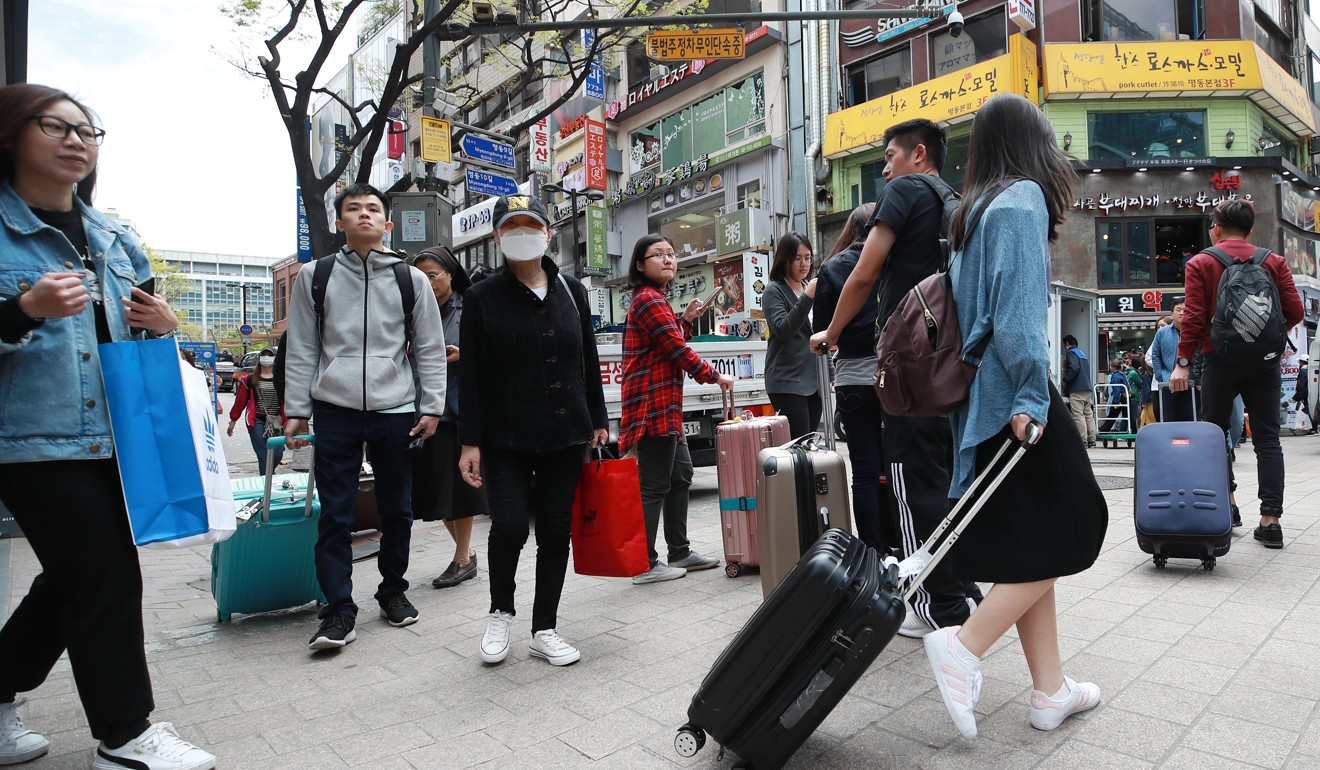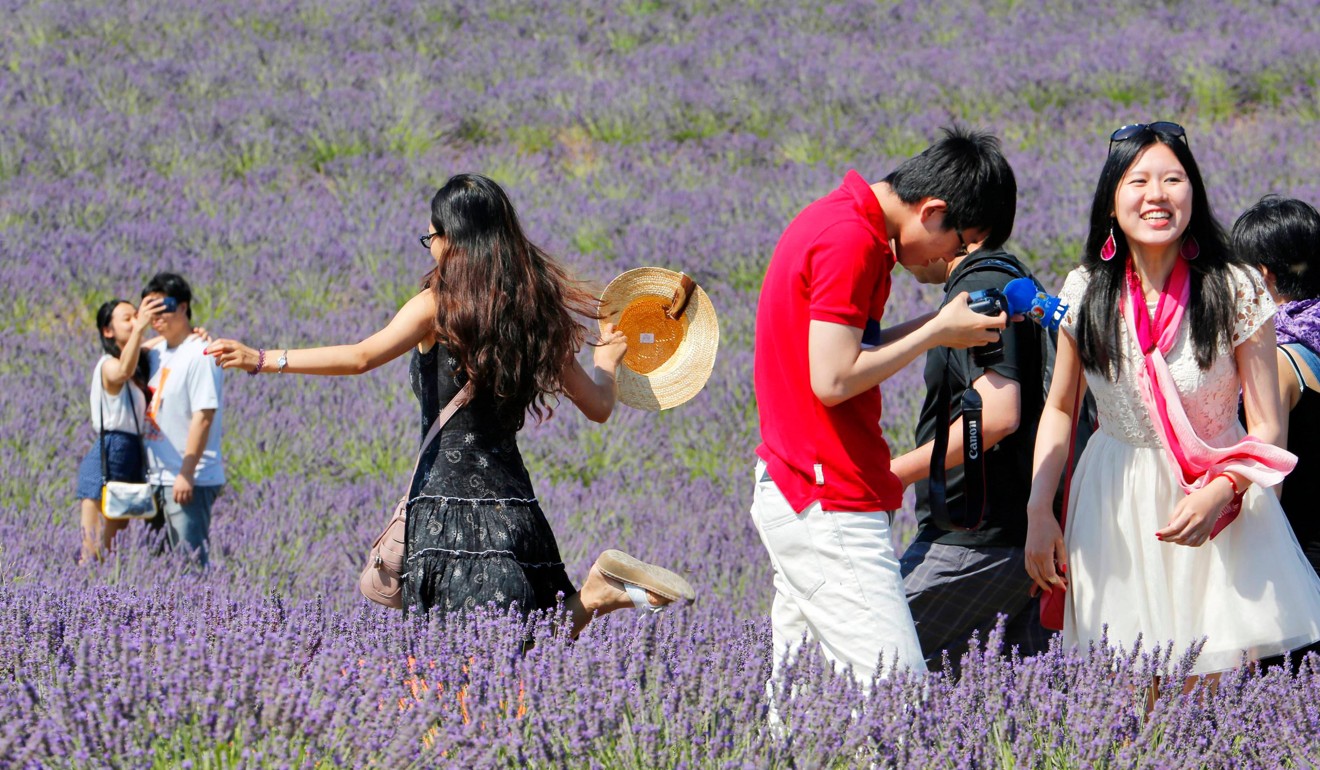
China’s travel bug has taken on a social media tinge, and that means experience-focused holidays ... and less shopping
- Chinese tourists are seeking out holiday experiences that can be shared on social media
- Digitally-enabled social travel explains surge in visits to famous sightseeing spots and bookings for unique recreational experiences
China’s vast and growing middle class remains as curious as ever about the world beyond its borders, as outbound tourism continues to grow by double digits, yet patterns of consumption are shifting in important ways as the tourism boom enters its second decade.
Once renowned as voracious consumers of branded goods while travelling beyond China’s shores, mainland tourists are now beginning to spend – and behave – in a different way, in an important shift which many analysts believe has been brought about by social media.
Among the new priorities are shareable memories that can be exchanged in the form of selfies on popular social networks such as WeChat. It’s a tectonic shift in consumer identity that has a direct manifestation in the type of experiences sought by tourists, and can help to explain the burst in popularity for homages to famous sightseeing spots and the surge in bookings for unique recreational experiences recommended on social media.
“I will definitely choose experience over shopping when I travel. Because I can always shop online, but if I missed those ‘WeChattable’ landmarks and restaurants, I may not be able to go next time. For me, the most important part of travelling is about the experience,” said Xiao Qianwen, a student from Sichuan, who usually does around three WeChat posts per day during her trips abroad.
The shift towards experiential travelling is evident in the latest findings by management consultancy Oliver Wyman. The consultancy, which has been tracking China’s outbound tourism trend for three years, found that only 41 per cent of respondents cited shopping as a trip purpose, compared to 76 per cent in 2017 and 91 per cent in 2016.

“Chinese consumers have leapfrogged shopping formats that are mainstream elsewhere and taken up mobile e-commerce, mobile payments, and social shopping with gusto. So it should come as no surprise that Chinese travellers are also highly social and digital,” the report said.
Last year, Chinese travellers made 140 million outbound trips, a rise of 13.5 per cent from 2017, according to the China Tourism Academy.
“That rise – slower than in previous years – was driven in roughly equal parts by the greater number of Chinese able to travel and by individual travellers’ increasing number of trips, our research suggests,” the Oliver Wyman report said.
The report also highlighted that sightseeing continued to be the dominant trip purpose in 2018, matching the results from the prior two surveys.
Consumption and new experiences continue to guide spending decisions, with about 53 per cent of survey respondents agreeing with the statement that “the most important part of a good holiday is to enable me to experience luxury that I can’t have back home”.
For the second year running, Chinese travellers reported spending less on shopping. The share of a trip’s budget devoted to shopping fell below a third, with decreases seen in the amounts spent on shopping for resale, for gift giving, and for self consumption.
However, for some destinations – including Italy, Macau, and South Korea – shopping still plays a large role.

“Consumers are increasingly searching for authentic and differentiated experiences which could allow them to express individuality. Consumers are re-evaluating their spending habits, moving away from overt materialism to simplicity, authenticity and individuality,” says Arianna Zhai, an analyst at Euromonitor International.
The impact of online reviews and influencers’ opinion continue to play a key role in Chinese tourists’ travel itinerary, as 57 per cent of respondents said they seek out restaurants with good online write-ups, compared to 46 per cent in 2017.
“The comments of the online reviews are very important to me. For example, if I saw negative comments about a hotel, it is likely that I won’t book it,” said Xiao.
Sites such as Mafengwo, Fliggy, WeChat and Weibo, are key sources of advice for Chinese holidaymakers, especially for dining and shopping, according to Euromonitor International. A survey by Mintel China revealed that half of consumers also watched travel shows or films to gather information.
Analysts said businesses seeking to tap China’s growing travel bug should focus on developing a presence on popular travel platforms and to be proactive in managing their brands and feedback with consumers.


